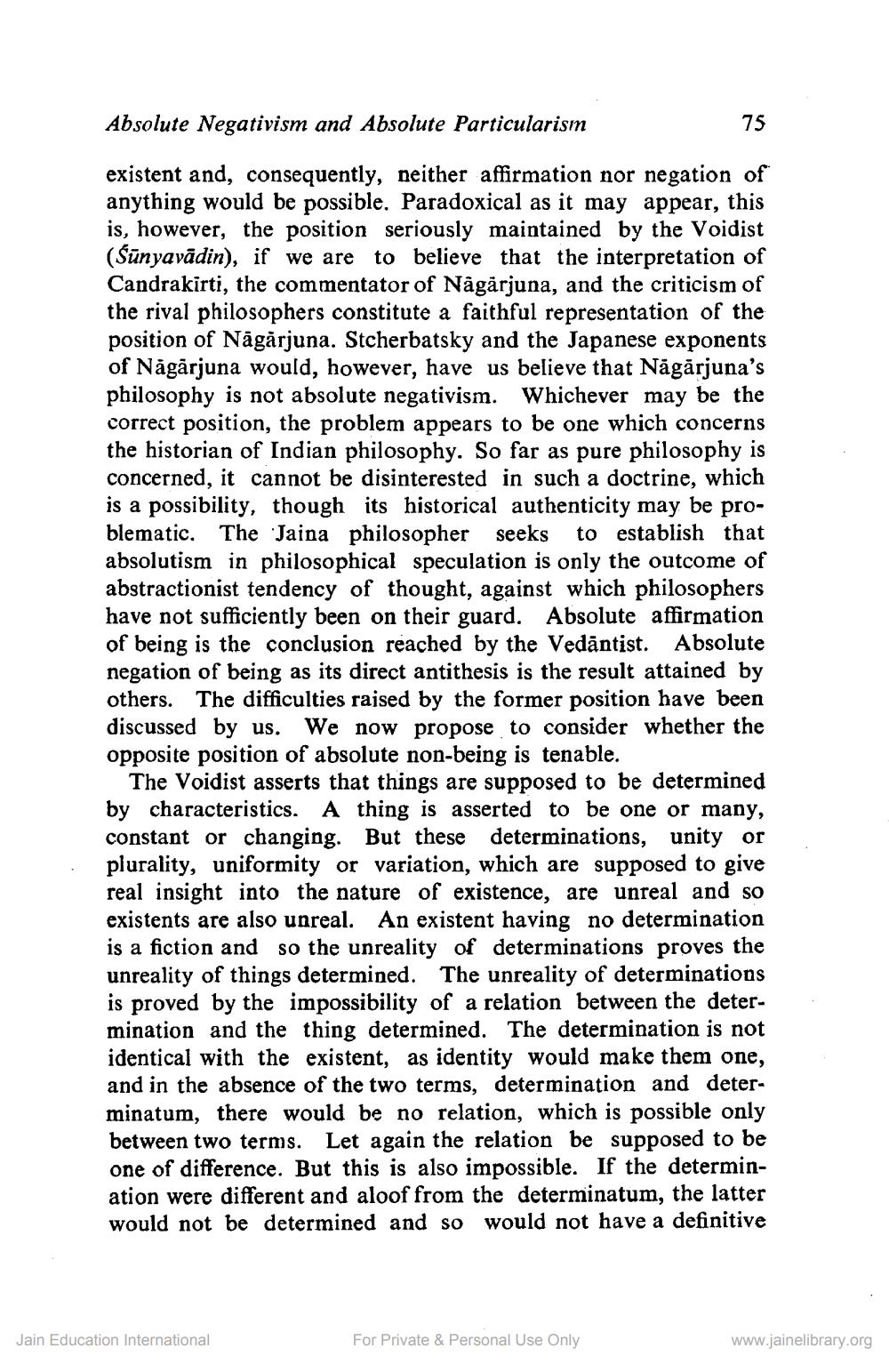________________
Absolute Negativism and Absolute Particularism
75
existent and, consequently, neither affirmation nor negation of anything would be possible. Paradoxical as it may appear, this is, however, the position seriously maintained by the Voidist (Śūnyavādin), if we are to believe that the interpretation of Candrakirti, the commentator of Nagarjuna, and the criticism of the rival philosophers constitute a faithful representation of the position of Nāgărjuna. Stcherbatsky and the Japanese exponents of Nāgārjuna would, however, have us believe that Nāgārjuna's philosophy is not absolute negativism. Whichever may be the correct position, the problem appears to be one which concerns the historian of Indian philosophy. So far as pure philosophy is concerned, it cannot be disinterested in such a doctrine, which is a possibility, though its historical authenticity may be problematic. The Jaina philosopher seeks to establish that absolutism in philosophical speculation is only the outcome of abstractionist tendency of thought, against which philosophers have not sufficiently been on their guard. Absolute affirmation of being is the conclusion reached by the Vedāntist. Absolute negation of being as its direct antithesis is the result attained by others. The difficulties raised by the former position have been discussed by us. We now propose to consider whether the opposite position of absolute non-being is tenable.
The Voidist asserts that things are supposed to be determined by characteristics. A thing is asserted to be one or many, constant or changing. But these determinations, unity or plurality, uniformity or variation, which are supposed to give real insight into the nature of existence, are unreal and so existents are also unreal. An existent having no determination is a fiction and so the unreality of determinations proves the unreality of things determined. The unreality of determinations is proved by the impossibility of a relation between the determination and the thing determined. The determination is not identical with the existent, as identity would make them one, and in the absence of the two terms, determination and determinatum, there would be no relation, which is possible only between two terms. Let again the relation be supposed to be one of difference. But this is also impossible. If the determination were different and aloof from the determinatum, the latter would not be determined and so would not have a definitive
Jain Education International
For Private & Personal Use Only
www.jainelibrary.org




